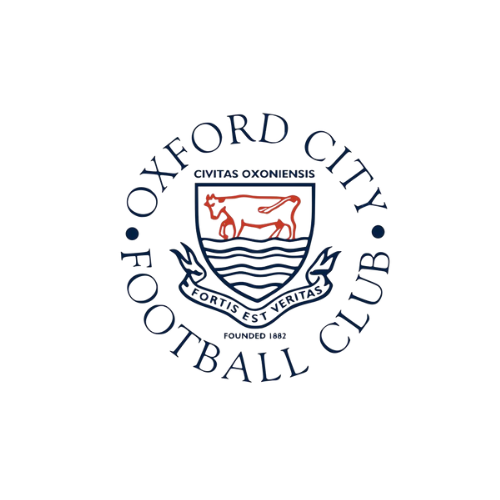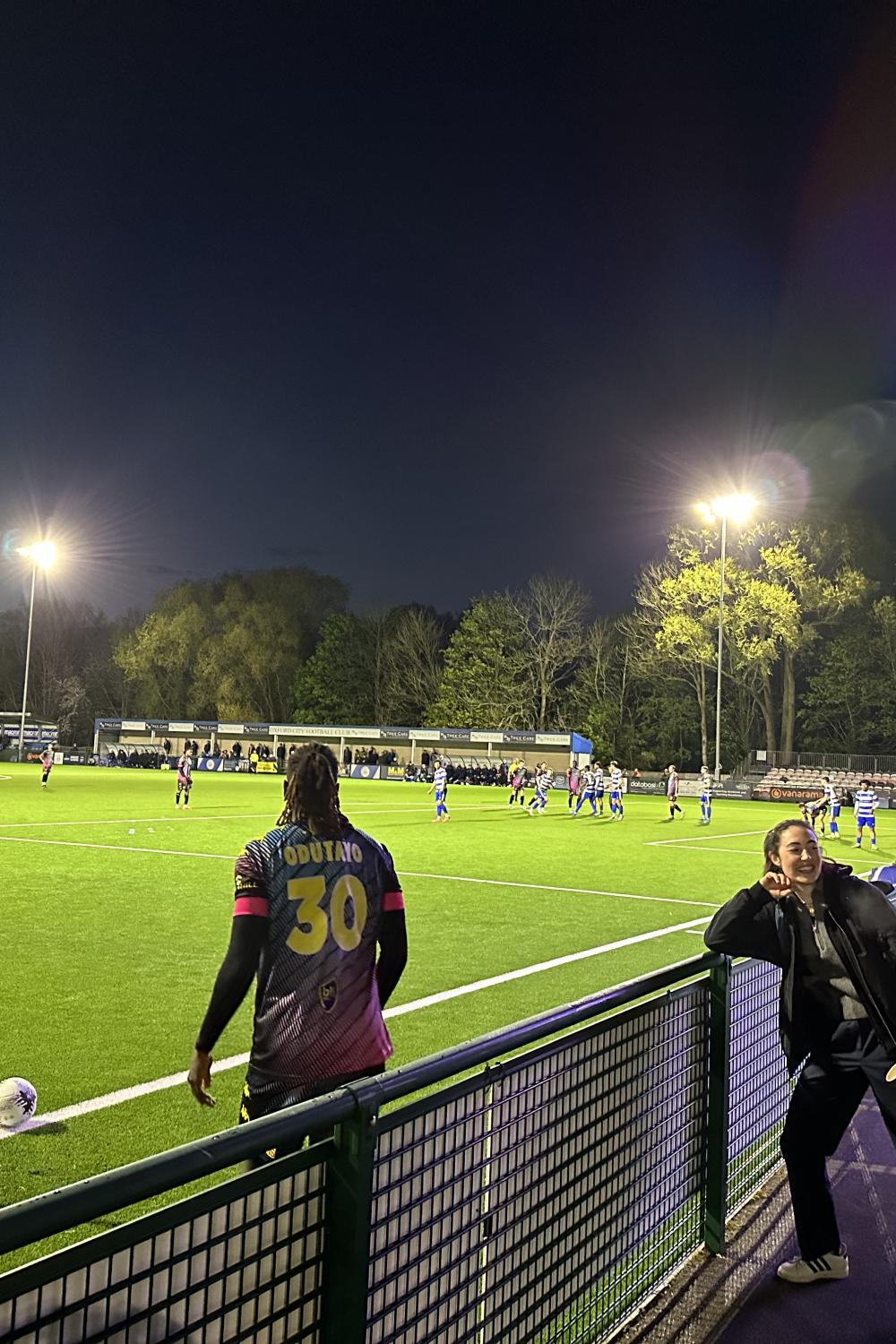Partner: Oxford City Football Club
Programme: Community Impact Lab, 2024
Fellows: Isabelle Haynes, Mathilde Ritman, Karaca Bingol

Background
Sports organisations and their communities can be important leaders in progressing global sustainability targets (Bates and Armstrong, 2024; Arora and Chandel, 2024). These organisations can advance local and global climate action among their community and the wider public by taking responsibility for their own carbon, environmental and social footprint (Morgan et al., 2021; Millington and Darnell 2019). United Nations Climate Change understands this impact potential and has invited sports organisations and their stakeholders to participate in the Sports for Climate Action Initiative (UNFCC, 2024). This initiative encourages the reduction of harmful climate impacts and the promotion of sustainable consumption and environmental advocacy. Our research used the United Nations Sustainable Development Goals (SDGs) as a framework. We addressed these challenges with a local partner: Oxford City Football Club (OCFC).

Research Approach
Oxford City Football Club's ambition is to become a community leader in sustainability. Through an initial eight-week collaboration we developed a sustainability strategy for OCFC; while remaining mindful of the club's resource constraints. Our approach to kick-starting OCFC's sustainability goals involved (a) reviewing successful sustainability strategies of other sports clubs, (b) consulting with local organizations and experts to identify collaborative opportunities, (c) surveying the OCFC supporter base for insights and expectations, (d) assessing the financial and logistical feasibility of various actions, and (e) recommending top low-cost, high-impact actions tailored for OCFC.
Key Findings
The survey conducted among the OCFC fanbase yielded 31 responses with insightful results regarding their awareness, satisfaction, and willingness to engage in sustainability efforts. A significant proportion of the respondents demonstrated awareness of the club's sustainability initiatives. However, a notable gap was observed between awareness and satisfaction, with fewer responses expressing satisfaction with the current sustainability efforts. Despite this, an overwhelming majority, exceeding 86%, emphasized the importance of sustainability for the future of OCFC. Fans indicated a readiness to adopt certain behaviours, such as recycling onsite, composting, and bringing their water bottles and reusable containers. There was, however, a marked reluctance to engage in more active and lifestyle-altering behaviours, such as changing dietary habits or cycling to the site. This divergence highlights the varying degrees of commitment fans are willing to make, with a preference for less disruptive changes. Additionally, the survey revealed a strong willingness among the fanbase to participate in a site brainstorming team dedicated to spearheading sustainability efforts at the club. This enthusiasm for direct involvement suggests that the fan community is a valuable resource for progressing the club's sustainability goals.
Table 1: Example of findings included in the Feasibility Assessment

Outputs
In addition to fan engagement, our project expanded OCFC's local partnerships to further its Environmental, Social, and Governance (ESG) goals. We engaged with local organizations such as the Low Carbon Hub and Good Food Oxfordshire, facilitating shared meetings to enhance the club's capacity to implement sustainable practices. These collaborations are expected to play a pivotal role in achieving the club's sustainability targets. By the conclusion of the project, significant progress was made with the Low Carbon Hub partnership. This resulted in two key outcomes for the club: an energy assessment and a solar assessment. These assessments are critical steps in identifying areas for improvement and implementing effective energy-saving and renewable energy strategies. The quantitative and qualitative results were presented in a feasibility assessment report. This tool will enable our partners to quickly identify the costs and benefits associated with the implementation of different protocols (Table 1).
Our key recommendations include introducing annual supporter surveys to gather data and opinions, educational workshops on climate change, a revamped menu featuring local produce and greener meals, a reusable pint cup project to eliminate single-use plastics, dissemination of travel policies to encourage sustainable travel, energy cost reductions through efficient water and heating systems, and water savings via updated shower fixtures. These strategies, collectively, aim to position OCFC as a model for sustainability within the sports sector. OCFC’s journey in becoming a more sustainable, socially responsible and engaged club will not only have a direct effect on local and global climate impact but also reduce long-term operational costs and enhance OCFC’s reputation and role in Oxfordshire as a community leader and hub.
The Community Impact Lab is supported by the University of Oxford’s ESRC Impact Acceleration Account







